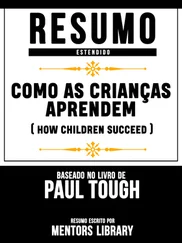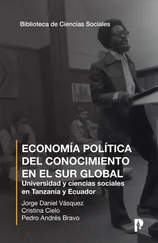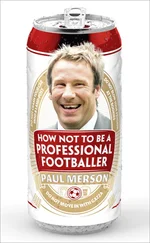Growing up, Kewauna said, she hated school. She never learned to read well, and in elementary school she fell farther and farther behind each year, getting in trouble, skipping class, and talking back to teachers. When she was in sixth grade, living outside of Minneapolis, she collected seventy-two referrals for poor behavior by the middle of the year, and so she was assigned to the slow class. She hated that too. A few weeks before the end of the year, she was kicked out of school for fighting.
When I met Kewauna, I had been reporting for several years on children growing up in poverty, and I had heard plenty of stories like hers. Every unhappy family may be unhappy in its own way, but in families that stay trapped in poverty for generations, the patterns can become depressingly familiar, a seemingly endless cycle of absent or neglectful parents, malfunctioning schools, and bad decisions. I knew how stories like Kewauna’s generally turned out. Girls with her history, whatever their good intentions, usually drop out of high school. They get pregnant while they are still teenagers. Then they struggle to raise families on their own, and before long, their own children are sliding down the same slope to failure.
But somewhere along the way, Kewauna’s life took a different turn. Just before her sophomore year of high school, a few weeks after Kewauna was arrested for the first time, for scuffling with a police officer, Kewauna’s mother told her that she wanted to have a talk. Kewauna knew it was serious, because her great-grandmother was there, too, the one member of her family Kewauna had always respected. The two women sat Kewauna down, and her mother uttered one of the hardest sentences for any parent to say: “I don’t want you to end up like me.” The three of them talked for hours, discussing the past and the future, digging up some long-buried secrets. Kewauna’s mother said she recognized the path that Kewauna was on: She also had been kicked out of school as a teenager; she, too, had been arrested for fighting with the police. But the next chapter of Kewauna’s story, her mom said, could be a different one. She could avoid unplanned pregnancies, unlike her mother. She could go to college, unlike her mother. She could have a career, unlike her mother.
Kewauna’s mom cried through practically the whole conversation, but Kewauna herself never shed a tear. She just listened. She wasn’t sure what to think. She didn’t know if she could change, and she didn’t know if she wanted to. When she got back to school, though, she started to pay more attention in class. In freshman year, she had run around with a rough crowd, girls into gangs and boys into drugs and everyone into skipping school. Now she pulled herself away from those friends, spending more time alone, doing homework and thinking about her future. At the end of her freshman year, her GPA was a miserable 1.8. By the middle of her sophomore year, it had climbed to 3.4.
That February, her English teacher encouraged her to apply for an intensive three-year college-prep program that had recently been introduced at the school. Kewauna applied, and she was accepted, and the support the program gave her made her work even harder. When I met her, she was in the middle of her junior year. Her GPA was 4.2, and she was preoccupied with the question of which colleges to apply to.
So what happened? If you had met Kewauna on the first day of her sophomore year, you could have been forgiven for thinking that she had virtually no chance to succeed. Her destiny seemed sealed. But something in her changed. Was it really just one stern talk with her mom? Was that all it took? Was it her great-grandmother’s positive influence? The intervention of her English teacher? Or was there something deep within her own character that inclined her toward the idea of hard work and success, despite all the obstacles she had faced and the mistakes she had made?
How do our experiences in childhood make us the adults we become? It is one of the great human questions, the theme of countless novels, biographies, and memoirs; the subject of several centuries’ worth of philosophical and psychological treatises. This process—the experience of growing up—can appear at times to be predictable, even mechanical, and at other times to be arbitrary and capricious; we’ve all encountered grown men and women who seem trapped in a destiny preordained by their childhoods, and we’ve all met people who seem to have almost miraculously transcended harsh beginnings.
Until recently, though, there has never been a serious attempt to use the tools of science to peel back the mysteries of childhood, to trace, through experiment and analysis, how the experiences of our early years connect to outcomes in adulthood. That is changing, with the efforts of this new generation of researchers. The premise behind the work is simple, if radical: We haven’t managed to solve these problems because we’ve been looking for solutions in the wrong places. If we want to improve the odds for children in general, and for poor children in particular, we need to approach childhood anew, to start over with some fundamental questions about how parents affect their children; how human skills develop; how character is formed.
At its core, this book is about an ambitious and far-reaching campaign to solve some of the most pervasive mysteries of life: Who succeeds and who fails? Why do some children thrive while others lose their way? And what can any of us do to steer an individual child—or a whole generation of children—away from failure and toward success?
1. How to Fail (and How Not To)
Nadine Burke Harris grew up surrounded by privilege in Palo Alto, California, the daughter of educated, professional Jamaican immigrants who had moved the family from Kingston to Silicon Valley when Burke Harris was four. As a girl, she often felt like an outsider, one of the only black students at her Palo Alto high school, where the kids were mostly white and well-off, and where the girls cried in the cafeteria if they didn’t get the right kind of car for their sixteenth birthdays.
Elizabeth Dozier grew up just outside Chicago in far more modest circumstances, the product of an unlikely and illicit romance between her father, an inmate at the state prison in Joliet, Illinois, and her mother, a nun who was assigned to visit prisoners as part of her religious duty and who wound up falling in love. After Dozier was born, her mother raised her alone, teaching at the local Catholic school and working summers as a motel maid to supplement her meager income.
Burke Harris and Dozier emerged from these very different childhoods with the same goal: to help young people succeed, especially young people in trouble. Burke Harris went to medical school, became a pediatrician, and opened a clinic in the poorest part of San Francisco. Dozier became a teacher, and then a principal, in schools in some of the poorest neighborhoods in Chicago. When I met them both, separately, a couple of years ago, what drew me to them was not just their similar sense of mission but a deeper frustration they seemed to share. Both women had recently come to the conclusion that the best tools available to them in their chosen professions were simply not up to the challenges they faced. And so they were both at turning points in their careers and their lives. They were looking for new strategies: in fact, they were looking for a whole new playbook.
In August of 2009, when Dozier was named the principal of Christian Fenger High School, the school was in a moment of crisis—though if you looked back at its history over the previous twenty years, it was hard to find a moment when Fenger was not in crisis. The school had stood for more than eighty years in the heart of Roseland, on Chicago’s South Side, a once-prosperous area that is now one of the worst-off neighborhoods in the city by just about every measure you can find—poverty rate, unemployment rate, crime rate, or even just the barren, empty feel of the streets. Where thriving businesses and homes once stood there are now vacant lots, overrun with weeds. Roseland is geographically isolated (close to Chicago’s southern border, way down past the last stop on the El) and racially segregated: in a city where the total population is roughly evenly divided among whites, African Americans, and Latinos, Roseland is 98 percent black. And like most big public high schools in high-poverty neighborhoods, Fenger High School has always had a dismal record: consistently low test scores, poor attendance, chronic discipline problems, and a high dropout rate.
Читать дальше
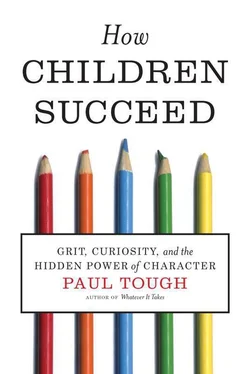

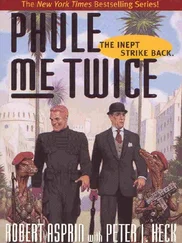
![Коринн МакКей - How to Succeed as a Freelance Translator [calibre 3.46.0]](/books/402693/korinn-makkej-how-to-succeed-as-a-freelance-transl-thumb.webp)


